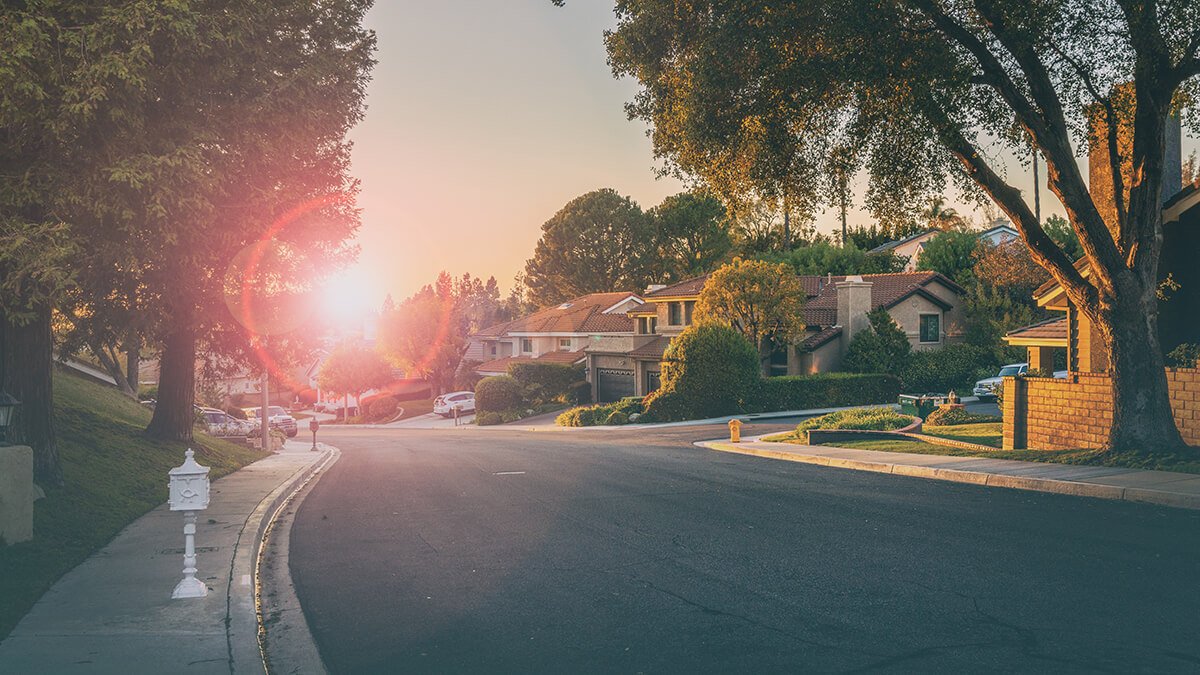Loud neighbors, irreparable lawns, and even zoning violations are some common things that impact property value. If you’re living in a neighborhood plagued by such problems, it’s important to address these warning signs to keep your property value from declining.
In this guide, we’ll explore eight common red flags that can devalue a neighborhood, and what you can do to keep them from affecting your home’s value.
If you’re in a situation where your property value is being affected, you may want to consider using iBuyer.com. We can provide you with a cash offer for your home, that way you can move out of a deteriorating neighborhood.
What Devalues a Neighborhood
Compare Cash Offers from Top Home Buyers. Delivered by Your Local iBuyer Certified Specialist.
One Expert, Multiple Offers, No Obligation.
1. Excessive noise
Noisy neighbors love to give everyone in their immediate vicinity a headache. They play loud music at odd hours and have parties late into the night. Despite any HOA restrictions on noise past a certain hour, they continue to flaunt these requirements.
These neighbors can also come in the form of those who have no consideration in the early morning. They mow their lawn at 4 am or play music in the early hours.
Whatever the case, these neighbors are a nuisance to everyone else. Studies have shown that loud noise has a strong correlation with declining property values. All it takes is one careless neighbor to cause this effect on a single street.
2. Aggressive pets
The stereotype that you’re in a bad neighborhood is a vicious pitbull held back by a chainlink fence. While this trope is common in movies, it’s a reality you have to consider. Territorial aggression is a part of a dog’s nature, meaning your neighbor’s dog will be a problem until they move out.
Aggressive dogs are a risk to neighbors of all ages. They pose a significant threat to young children and the elderly. But even a healthy young adult could suffer serious wounds from a dog attack.
Further, dogs contribute to the aforementioned noise problem when they bark, and thus reduce property values.
3. Neglected lawns and excessive weeds
Perhaps the most obvious on this list are the lawns that haven’t gotten landscaped.
It doesn’t matter if it’s been weeks, months, or even years. These homes are more than an eyesore. They can harbor pests or much worse.
Neglected lawns tend to be a perennial problem. If your neighbor doesn’t keep up with lawn work now, it’s highly unlikely they will change.
4. Too much trash
Like with the weeds, an excessive amount of trash isn’t just a bad look for the neighborhood. Food waste can attract animals, which may stick around to feast on your lawn or trash. This can include nasties like rats, skunks, and even raccoons.
5. Violating HOA regulations
HOA regulations are often the last line of defense against neglectful neighbors. Fines are often steep, and the HOA has a reputation for aggressively pursuing violators.
However, that becomes more difficult as more and more neighbors defy them. Your local HOA can become overextended trying to curtail some of these issues. Repeated offenses can lead to continued weakening of the HOA’s power in intervening.
6. Dilapidated exterior
It doesn’t take much for a home to start to look like a haunted house. Peeling paint, missing roof shingles, and old rotting fences. The neighbor who doesn’t keep up with his lawn likely won’t care for his home’s exterior, either.
Poorly-maintained homes, like unruly lawns, are the first thing prospective buyers will see. Even if the home is a foreclosure, it’s a really bad look for your neighborhood.
7. Zoning violations
Zoning laws are very strict about what is allowed, and what is not. Homeowners must review the law before making significant changes or decisions with their property. But that doesn’t stop homeowners from running secret AirBnBs or worse.
Violating these zoning laws can only hurt homeowners. As more of your neighbors overstep their bounds, they exacerbate this problem.
8. Too much partying
Partying needs to be excessive before it becomes a problem. Parties multiple times a month that go late into the evening or night aren’t just loud. They crowd the street with vehicles belonging to strangers and may bring undesirable folk into your neighborhood.
Can I sue my neighbor for lowering my property value?
Now that we’ve covered the nine most common issues, how do you deal with them? If a suit is the first thought on your mind, take a few steps back. It’s important to seek all available avenues before going with the nuclear option.
Remember, you’re invested in this neighborhood. One negative interaction with your neighbor can put a bad taste in both parties’ mouths. Put your best foot forward to ensure peaceful transactions from here on out.
Talk to them
Diplomacy is always the best policy. There’s a good chance your neighbor has different expectations than you do. The solution may require a simple conversation to help them understand how their decisions affect everyone else.
Keep in mind that people cannot read your mind. You may be utterly infuriated by the actions of your neighbor. Meanwhile, they are completely unaware of how they’ve affected you in the first place.
Approach them in a respectful and tactful manner. Avoid an outburst or any condescending language. Human psychology being what it is, you’re unlikely to reach an agreement if you’re aggressive or accusatory.
Further, your actions now will determine where a court case is viable later. If you skip this step and head straight for lawsuit territory, the judge may note your failure to make amends. Plus, it doesn’t hurt to try.
Being the mature, responsible party wins you points for a potential case, too. A judge is likely to look unfavorably on a case where you proved to be the unreasonable party.
Offer help
Consider the fact that the neighbor may be aware that some of their actions are detrimental to the community. However, they may have a lot on their plate, forcing them to neglect important homeowner duties.
They may be suffering from health issues, or have had a tragedy like water damage from a huge leak. As a result of this situation, they may not have the means, time, or energy to fix things.
Be a good neighbor and offer what help you can. Mowing their lawn or helping to repaint only costs you some of your time. In return, you improve your property value.
Discuss it with the HOA
If push comes to shove, you always have that one last option: the HOA. The HOA thrives with cases where two neighbors were unable to come to an agreement. They can put pressure on someone who told you to shove it when you pointed out their poor behavior.
The HOA has contractual and legal power, meaning they’ll use more than words to get things done. They can give an ultimatum in no uncertain terms to oblige your neighbor to make changes. They’ll follow up with it, meaning you no longer have to deal with that neighbor.
The HOA pursues permanent solutions. A homeowner who fails to keep up with their lawn needs checkups to make sure they fell in line. A visit from the HOA is never a fun one, and most homeowners will change their attitude after such an interaction.
Take it to the authorities
If the above has failed, it’s time to take it up with the law. There are a handful of ways you can do this before filing suit:
- Contact state or local departments and file a report
- Build a physical barrier to isolate yourself in the event of land disputes or other nuisances
- Install a “No Trespassing” sign
- Make a court case under nuisance laws if the neighbor is unreasonable
- Have an agent build a case for why your property value has declined
Filing a lawsuit is possible, but you will need strong proof that your neighbor truly lowered your property value. You may need to hire a realtor or other professional to provide adequate proof that the value went down. This may be a laborious and protracted affair, so do try to try other measures before you resort to this.
Need to sell your house fast? iBuyer can help
Can I sue my neighbor for lowering my property value? In most cases, this should only be your last resort option. Find diplomatic solutions if possible, but don’t be afraid to get the HOA or the law involved.
iBuyer is your go-to source for real estate and home valuation. We’ll help you sell your home as a result of an emergency, or if you just don’t want to deal with the stress. Use our free home value estimator and find out how much you can get in cash for your property today.




